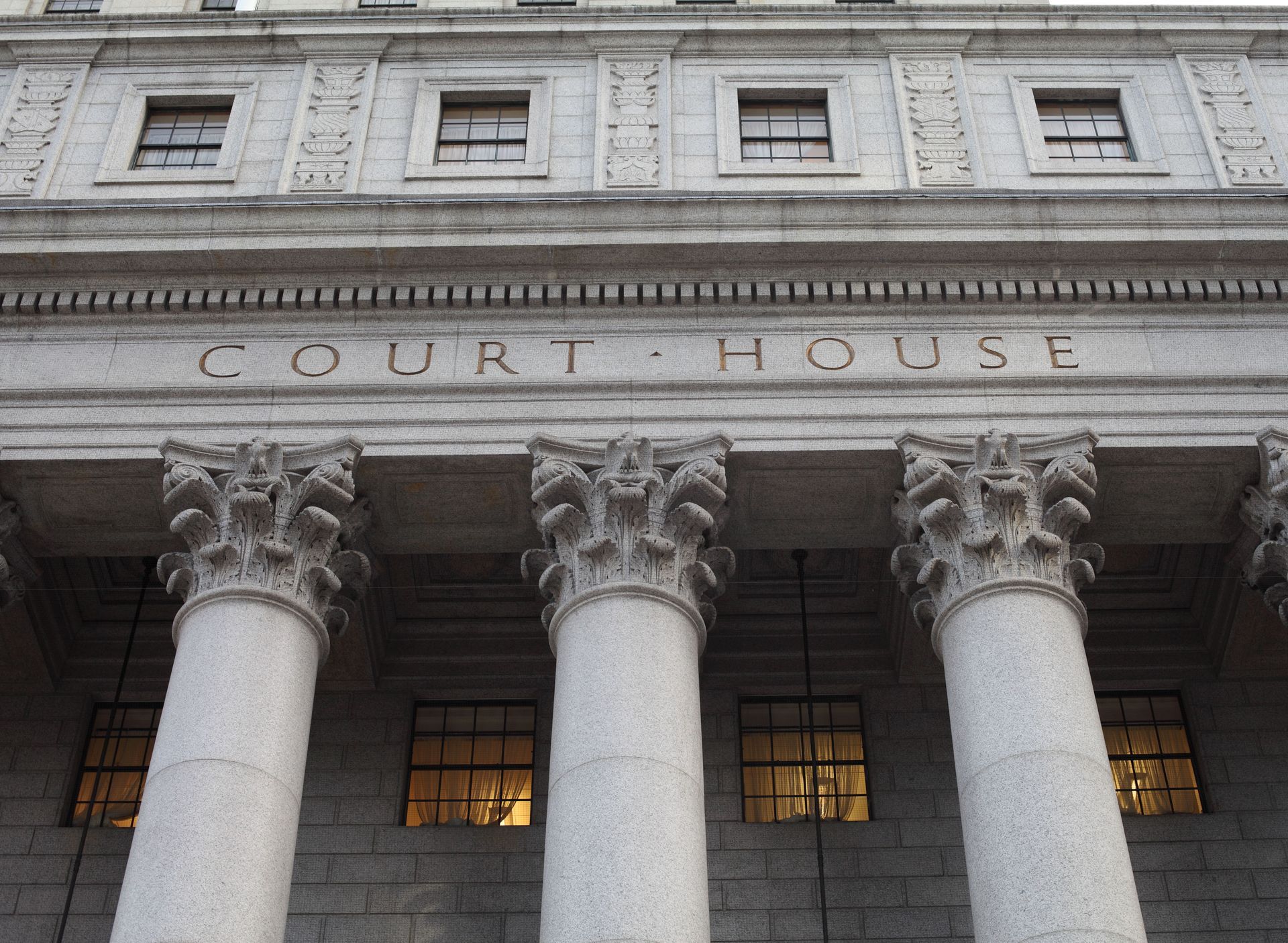Can a DWI Conviction Be Removed from Your Record in Texas? Your Legal Options Explained
November 18, 2025
November 18, 2025
Highlights:
- A DWI conviction in Texas generally cannot be completely erased, but certain cases may qualify for expunction or nondisclosure.
- Legal remedies depend on the case outcome — such as dismissal, deferred adjudication, or acquittal.
- Expunction clears your record entirely, while nondisclosure seals it from public access.
- Understanding the long-term impact of a DWI on employment, housing, and reputation is essential before deciding your legal path.
- The guidance of a lawyer in Burleson, TX experienced in DWI hearings and sentencing can make the difference between a permanent record and a second chance.
Understanding the Impact of a DWI Conviction in Texas
A DWI conviction in Texas carries far-reaching consequences beyond the courtroom. It affects your ability to find housing, apply for jobs, or even secure certain professional licenses. Because Texas treats Driving While Intoxicated (DWI) as a serious offense, even a first-time conviction can stay on your record for life.Under Texas law, your DWI record becomes part of your criminal history the moment you are convicted. This record is accessible to employers, licensing boards, and background check companies. Without action, that record does not disappear over time.
According to Clio , nearly 78% of people facing legal issues report feeling uncertain about what steps to take after a criminal conviction. That uncertainty often leads to missed opportunities for relief — including options to seal or remove the record through specific legal processes.
At Michael J. Rogers, P.C., we often meet individuals who believe that nothing can be done once a DWI conviction is entered. However, the reality is more nuanced. Texas law provides limited but powerful options that can help you rebuild your life with the right legal guidance.
The Difference Between Expunction and Nondisclosure
Before diving into eligibility, it’s important to understand the distinction between expunction and nondisclosure, as they offer different levels of relief.Expunction completely erases your record, as if the arrest or conviction never happened. It applies only in narrow situations, such as:
- You were acquitted (found not guilty)
- Charges were dismissed
- You completed a pretrial diversion program
- The case was never filed after arrest
Nondisclosure, on the other hand, seals your record from public view but keeps it accessible to law enforcement and certain government entities. It’s typically available for those who successfully complete deferred adjudication for a first-time DWI offense.
Each route has its own waiting periods, paperwork, and eligibility criteria, which is why consulting a lawyer in Burleson, TX experienced in DWI hearings and sentencing can help determine the right strategy.
Eligibility for Expunction After a DWI in Texas
Expunction eligibility for DWI cases is extremely limited. In most cases, if you were convicted, expunction is not an option. However, you might qualify if:- Your case was dismissed without a conviction.
- You were found not guilty at trial.
- You successfully appealed a conviction and were acquitted.
According to Spotdraft , about 75% of individuals who consult an attorney early in their legal process experience significantly better outcomes. This statistic reinforces the importance of acting promptly — especially before a case reaches the conviction stage.
A lawyer in Burleson, TX experienced in DWI hearings and sentencing will carefully examine your case’s history to see whether an expunction could apply and will handle the complex filing requirements necessary to initiate the process.
FAQ: Common Questions About DWI Record Removal
When Nondisclosure May Apply
For those who received deferred adjudication, the Texas nondisclosure law offers a practical second chance. Deferred adjudication is not a conviction — it’s a type of probation that allows you to complete certain court requirements. If you complete them successfully, the case can be dismissed, making you eligible to seal your record under Texas Government Code §411.0731.However, not every DWI qualifies. You are not eligible if your DWI:
- Involved an accident that caused injury or death
- Included a blood alcohol concentration (BAC) of 0.15 or higher
- Occurred alongside another criminal offense
Did You Know?
The Role of Deferred Adjudication in DWI Cases
Deferred adjudication can be a valuable option if your case meets certain criteria. Essentially, you plead “guilty” or “no contest,” but the court withholds a conviction. You must complete probation, attend alcohol education programs, or perform community service.Upon successful completion, your case is dismissed, and you can apply for an order of nondisclosure after a waiting period. For many, this represents a clean slate — though it’s important to remember that law enforcement agencies and licensing boards can still access sealed records.
According to Rev , more than 65% of individuals facing criminal charges who received timely legal help reported feeling more confident about their future opportunities. This demonstrates how early legal representation can shape the outcome of your case.
At Michael J. Rogers, P.C., we take pride in helping our clients navigate these complexities with compassion and precision. Every DWI case deserves a strategy tailored to the facts and the person behind them.
FAQ: Clearing Up Common Misconceptions
Why Legal Help Matters for Record Removal
While online guides offer general information, only a lawyer in Burleson, TX experienced in DWI hearings and sentencing can apply the law precisely to your circumstances. The paperwork involved in both expunction and nondisclosure must be accurate and supported by certified records.Filing errors, missed deadlines, or misunderstanding eligibility can lead to delays or outright denial of relief. Moreover, the legal interpretation of “conviction” under Texas law can vary based on court language and prior offenses.
That’s why personalized legal support matters. Your attorney will not only handle filings but also argue for your eligibility during hearings and present evidence of rehabilitation and good conduct.
How a DWI Affects Your Future Opportunities
The ripple effect of a DWI conviction can extend for years. Common consequences include:- Increased car insurance rates
- Difficulties securing housing
- Ineligibility for professional licenses (like nursing or education)
- Limited career advancement opportunities
At Michael J. Rogers, P.C., we’ve helped countless Burleson residents reduce these long-term burdens through expunction and nondisclosure petitions tailored to their cases.
Final Thoughts: Your Future Can Be Rewritten
At Michael J. Rogers, P.C., Burleson, TX, we understand how stressful and stigmatizing a DWI record can be. Our goal is to help clients reclaim their peace of mind through clear, effective legal strategies. Whether through expunction or nondisclosure, there may be options available that you haven’t yet explored.If you’re unsure where to start, consult a lawyer in Burleson, TX experienced in DWI hearings and sentencing who can assess your situation and guide you through every stage of the process. You deserve the chance to move forward without your past following you. Contact Michael J. Rogers, P.C. today to discuss your legal options and start your path toward a clean record.
Did you know that Texas has one of the highest rates of DWI arrests in the country?
- Over 80,000 DWI arrests occur annually across the state.
- The Texas Department of Transportation estimates that one person dies every 7 hours in an alcohol-related crash.
- Despite these sobering statistics, Texas also has progressive laws that allow qualified individuals to move past a single mistake through nondisclosure.




